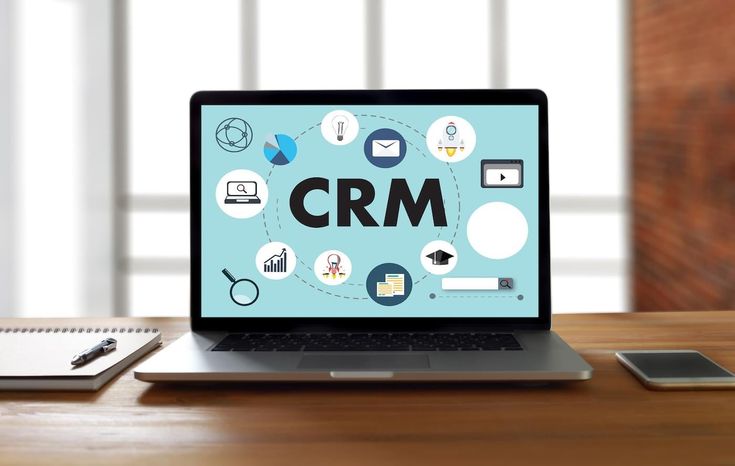Choosing the right Customer Relationship Management (CRM) software is crucial for optimizing business processes, enhancing customer interactions, and driving growth. Different industries have unique needs and challenges, making it essential to select a CRM solution that aligns with your specific industry requirements. Here’s a guide to help you choose the best CRM software for your industry, with considerations tailored to various sectors.
1. Identify Your Industry-Specific Needs
Before selecting a CRM, assess the specific requirements of your industry. Different sectors have unique needs, such as regulatory compliance, sales processes, or customer service protocols. Identify key features that are critical for your industry, such as:
- Healthcare: Patient management, appointment scheduling, and compliance with health regulations.
- Retail: Inventory management, customer loyalty programs, and point-of-sale integrations.
- Manufacturing: Supply chain management, order tracking, and production scheduling.
2. Evaluate Core CRM Features
While industry-specific features are essential, all CRM software should offer core functionalities that support general business needs. Evaluate CRM solutions based on the following features:
- Contact Management: Ability to store and manage customer information effectively.
- Sales Automation: Tools for tracking leads, managing sales pipelines, and automating repetitive tasks.
- Marketing Automation: Capabilities for email marketing, campaign management, and customer segmentation.
- Customer Service: Features like ticketing systems, helpdesk integration, and support case management.
3. Consider Customization and Flexibility
Industry-specific requirements may necessitate customization of CRM software. Look for solutions that offer:
- Customizable Fields and Workflows: Tailor the CRM to fit your industry’s unique processes and terminology.
- Scalability: Ensure the CRM can grow with your business and adapt to changing needs.
- Integration Capabilities: Ability to connect with other tools and systems commonly used in your industry.
4. Assess Industry-Specific CRM Solutions
Some CRM platforms are designed specifically for certain industries, offering tailored features and functionalities. Here are examples of industry-focused CRM solutions:
- Healthcare: Kareo, Nextech – These CRMs offer features for managing patient records, appointments, and regulatory compliance.
- Retail: Shopify CRM, Lightspeed – Designed for retail businesses, these CRMs integrate with point-of-sale systems and manage inventory and customer loyalty.
- Real Estate: Zoho CRM, Salesforce Real Estate Solutions – Provide features for property management, client communication, and transaction tracking.
5. Evaluate User Experience and Support
A CRM’s user experience can significantly impact its effectiveness. Consider the following:
- Ease of Use: The CRM should have an intuitive interface that is easy for your team to navigate.
- Training and Support: Ensure the provider offers comprehensive training and responsive support to help with onboarding and ongoing usage.
6. Review Security and Compliance Features
Depending on your industry, data security and regulatory compliance may be critical. Look for CRMs that offer:
- Data Encryption: Secure storage and transfer of customer data.
- Compliance Tools: Features to help meet industry-specific regulations (e.g., HIPAA for healthcare, GDPR for businesses operating in the EU).
- Access Controls: Options to manage user permissions and data access.
7. Consider Integration with Existing Systems
Integration with other tools and systems is essential for a seamless workflow. Evaluate how well the CRM integrates with:
- ERP Systems: For industries that require integrated financial and operational management.
- Marketing Platforms: To synchronize marketing efforts and customer data.
- Customer Support Tools: For managing support tickets and customer service interactions.
8. Evaluate Pricing and ROI
Consider the cost of the CRM software and its return on investment (ROI). Factors to evaluate include:
- Pricing Structure: Understand the cost of licenses, additional features, and user seats.
- Value for Money: Assess the CRM’s features and benefits relative to its cost.
- Trial and Demos: Take advantage of free trials or demos to evaluate the CRM’s fit for your business.
9. Gather Feedback from Your Team
Involve your team in the decision-making process. Gather feedback from:
- End Users: Those who will interact with the CRM daily.
- Decision Makers: Key stakeholders who understand the strategic needs of the business.
- IT Team: For insights into technical compatibility and integration requirements.
10. Make an Informed Decision
After evaluating all factors, make a decision based on how well the CRM aligns with your industry’s needs, the core features offered, and the overall value provided. Ensure the chosen CRM will enhance your business processes, improve customer interactions, and drive growth.
Conclusion
Choosing the best CRM software for your industry requires a thorough understanding of your specific needs and a careful evaluation of potential solutions. By considering industry-specific requirements, core CRM features, customization options, and integration capabilities, you can select a CRM that aligns with your business goals and supports your industry’s unique demands. Investing in the right CRM will streamline your operations, enhance customer relationships, and drive long-term success for your business.
